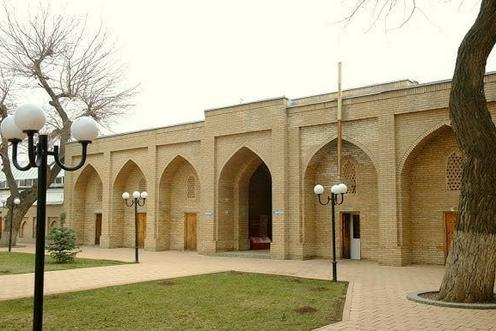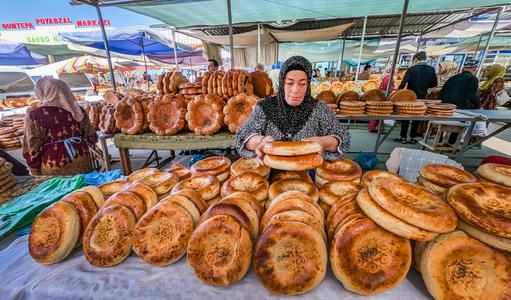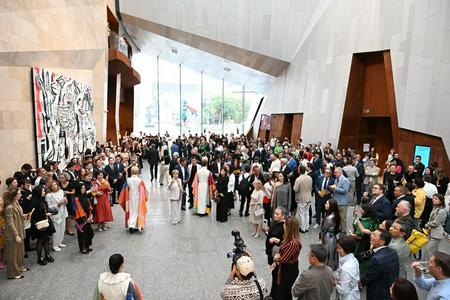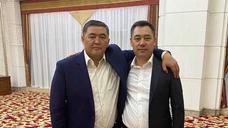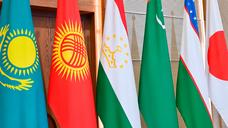The Center for Islamic Civilization in Tashkent is preparing a special exhibition dedicated to Azam Makhdumi Kosoni, a renowned theologian, influential Sufi thinker, and public figure, the Center’s press service reported.
The exhibition will feature manuscripts, writings, and rare artifacts connected with Kosoni. It will also include reconstructions of elements from his mausoleum complex in Samarkand Region. Visitors will have access to multimedia content and 3D models, allowing them to virtually walk through the corridors and halls of the memorial site and to experience the atmosphere of the spiritual school where the hidden (botiniy) and outward (zohiriy) dimensions of Sufi teaching were integrated.
The project is presented not only as a museum commemoration of the past but also as a space for intergenerational dialogue. The Center emphasizes that Makhdumi Azam’s ideas extend beyond the Sufi tradition:
“This is a philosophy of moral education, service to society, and cultural self-determination. His legacy is considered part of national memory and spiritual identity, and the exhibition becomes a platform for understanding the influence of Sufi thought on science, architecture, and culture in the region,” the statement said.
Makhdumi Azam Kosoni (Sayyid Ahmad Khoja Dahbediy, 1461–1542) was one of the most prominent Sufi scholars of Central Asia — a spiritual mentor, theologian, and public leader. Born in Kasbi, he studied in Bukhara and Samarkand before leading the Naqshbandi order in the Samarkand region. His teaching combined spiritual self-perfection with active service to society. Author of works on theology and ethics, he had a profound influence on the religious life of the region.
The Center for Islamic Civilization was built next to the Khast-Imam complex. Designed in the style of medieval architecture, the building features four portals, each 34 meters high, and a central dome rising 65 meters. It houses a Quran hall, a 460-seat conference hall, and a museum whose exhibitions cover the history of Uzbekistan from pre-Islamic times to the present. The Center aims to serve as a hub for studying and reinterpreting the heritage of the past in cooperation with the International Islamic Academy of Uzbekistan and research institutions worldwide.
